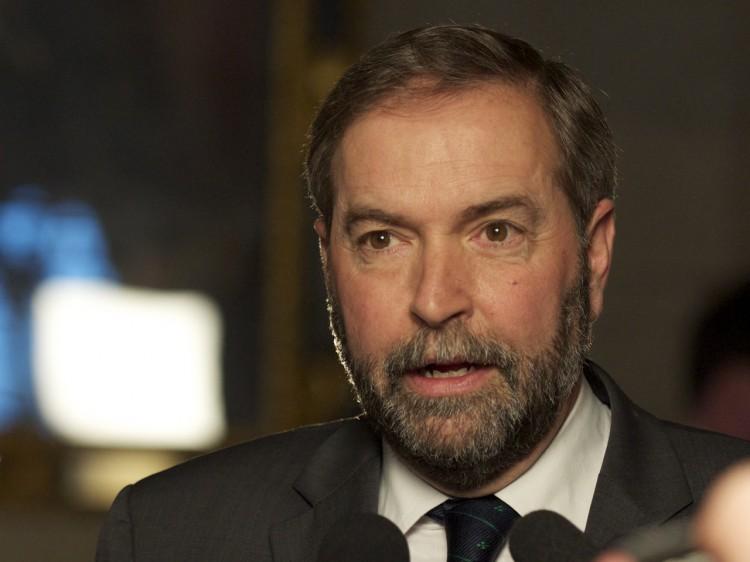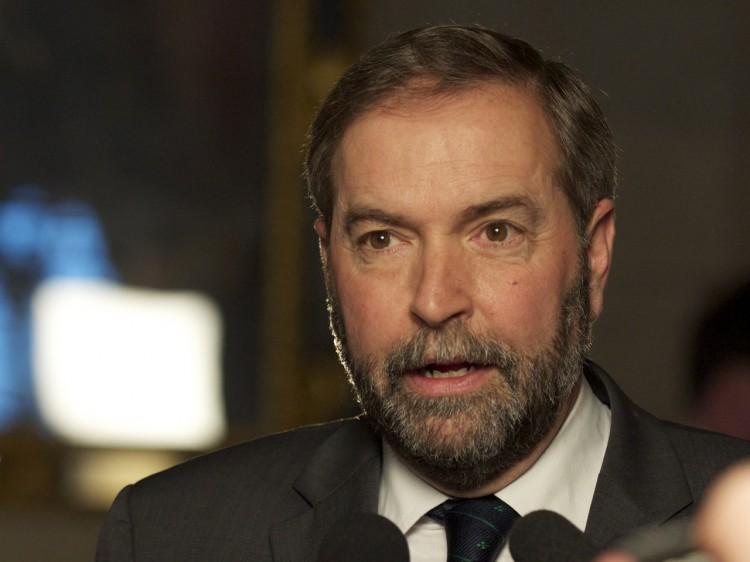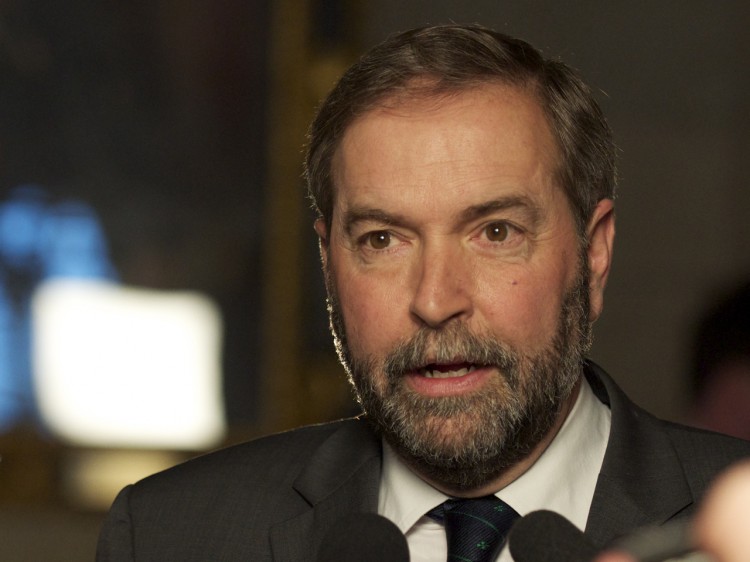PARLIAMENT HILL, OTTAWA—Ekos pollster Frank Graves believes the Tories will find it more difficult to brand NDP leader Thomas Mulcair than they did former Liberal leaders Stéphane Dion and Michael Ignatieff.
“Unlike those two previous examples, Mulcair is a seasoned political pro,” said Graves
“He seems to have a fair level of toughness. The Tory attacks on [former PM Jean] Chrétien as ‘yesterday’s man’ backfired. It’s too early to say but I think Mulcair will not be a docile or easy target.”
The Tory attack machine launched into action quickly, with an email to reporters soon after Mulcair’s coronation in Toronto giving a preview of what is likely to come.
“Thomas Mulcair is an opportunist whose high-tax agenda, blind ambition, and divisive personality would put Canadian families and their jobs at risk,” reads a statement from Conservative spokesperson Fred DeLorey.
“Mulcair has said he would bring back a risky, job-killing carbon tax which would raise the price of everything—even though Canadians overwhelmingly rejected carbon taxes,” it continued.
Prime Minister Stephen Harper countered that tone slightly by congratulating Mulcair from Tokyo where the PM also announced the launch of free trade negotiations between Canada and Japan.
Graves questioned the line of attack the Tories took, suggesting it did not seem as well-thought-out as he would have expected.







